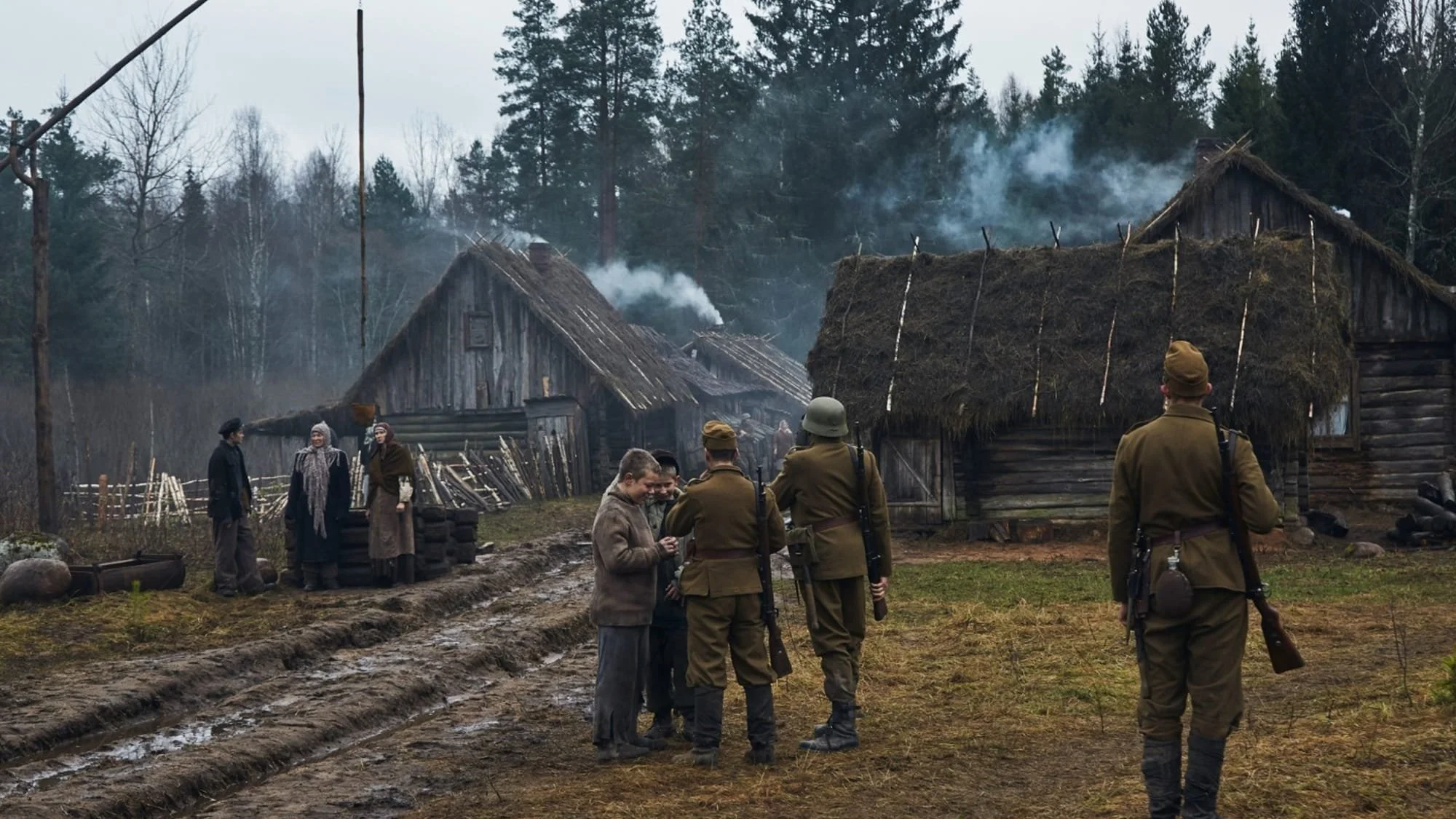Natural Light
Winner of the Silver Bear for best director, Dénes Nagy’s first feature is a minimalist war film hard to warm to.
At the 2021 Berlin Film Festival, Dénes Nagy won the Silver Bear award as best director, a remarkable achievement for somebody who had never made a full-length film before. That it was amply justified is apparent as soon as you watch the work in question, Natural Light. This is filmmaking of a classic quality with every image considered, detailed attention paid to the soundtrack both in the case of natural sounds and in the use of a discreet music score by Santa Ratniece, photography of the highest quality (particularly important when so many scenes take place at night) and evident ability to create a work which makes us feel that we are actually sharing the experiences of those seen on screen.
But, while the skill of Dénes Nagy, previously a director of short films and documentaries, has to be admitted, his film is one which, for me at least, has its drawbacks. The place to which Natural Light takes us is the Soviet Union of the Second World War when it was occupied by the Germans and when Hungarian soldiers were put under orders to help root out partisans. The man through whose eyes we see this is István Semetka, a farmer serving as a corporal, and the action unfolds over a few days during which his unit walk into a trap, his commander is killed and the survivors return to the nearby village which they had left. It’s a village that had once housed partisans and, suspecting that they had been betrayed by the occupants, they blame the villagers for what has befallen them.
That may suggest that Natural Light offers potent drama, but this is not a fast-moving film and it takes its time in reaching the incidents that I have mentioned. Although the precise setting here is unfamiliar to us and may have a special interest for Hungarian audiences, the film plays as a generalised comment on what war does to people. In addition to depicting the suffering of civilians this is a portrait of how being a soldier wears away the humanity which should be inherent in every individual. Unlike some men seen here, Semetka shows signs of wanting to hold back from the violence (at one stage he chooses not to turn over some partisans he has discovered). But, whether or not one sees it as the inevitable cost of surviving in these circumstances, Semetka becomes increasingly numb emotionally through being caught up in war. Not even the prospect of home leave when it eventually comes about can spark him back to life.
Dénes, who chose to use non-professional players, has created a film which by portraying war’s impact on Semetka could have been a moving study of one man’s experience. However, whether or not it is in order to make him appear an everyman figure, we learn little about him. It does emerge that he has a wife and child but, even when he encounters a sergeant major named Koleszár (Laszló Bajkó) who is an old acquaintance, no further information is disclosed. Just as many faces in the film are memorable, Ferenc Szabó’s features can be striking, but for much of the time Semetka is photographed with the camera viewing him from behind. Add to that the fact that the dialogue in the film is deliberately minimal (a rare exception being a scene in which Koleszár expresses philosophical ideas about the nature of war) and you have a work that invites physical identification with Semetka but which is nevertheless short in arousing any emotional sense of affinity. Anyone for whom this film’s revelation of a soldier’s life is new ground might be bowled over by it, but for the rest of us it becomes a rather hard slog. Consequently, this is a film that is easy to respect (both its message and its artistic quality undoubtedly earn that), but it’s not easy to warm to it.
Original title: Természetes fény.
MANSEL STIMPSON
Cast: Ferenc Szabó, Lászlo Bajkó, Tamás Garbacz, Gyula Szilágyi, Gyula Franczia, Stuhl Erno, Mareks Lapeskis, Kozó Krisztián, Nánási Csaba, Fodor Zsolt, Mondovics Mihály, Barta József.
Dir Dénes Nagy, Pro Sára László, Marcell Gerő, Caroline Piras, Inese Boka and Melanie Blocksdorf, Screenplay Dénes Nagy, from the novel Természetes fény by Pál Závada, Ph Tamás Dobos, Pro Des Márton Ágh, Ed Nicolas Rumpl, Music Santa Ratniece, Costumes Márton Ágh.
Campfilm/Mistrus Media/Lilith Films/ZDF Arte/Propeller Film-Curzon Film World.
103 mins. Hungary/Latvia/France/Germany/Belgium. 2020. Rel: 12 November 2021. Cert. 15.


